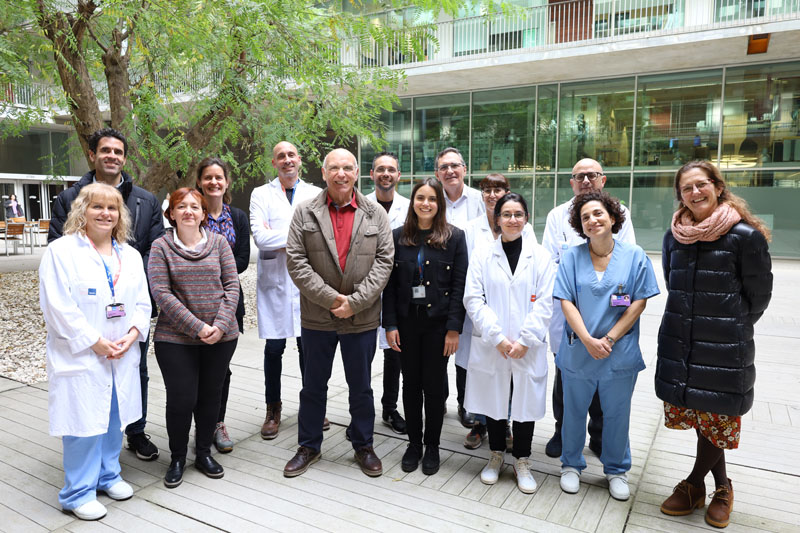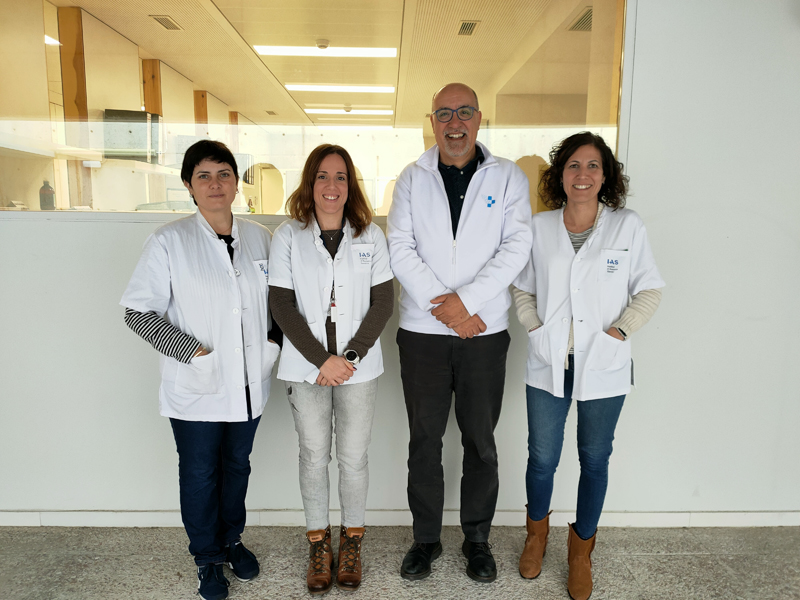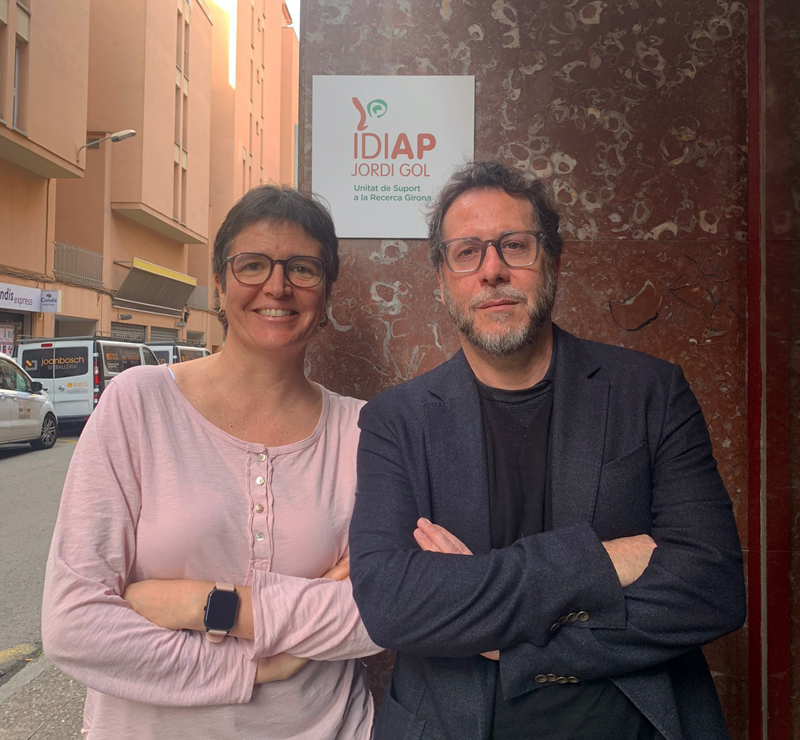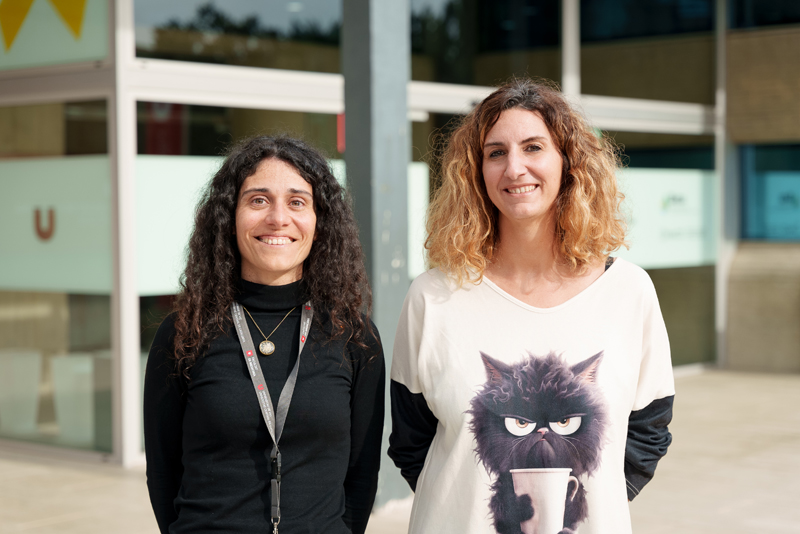
28/02/2024 - Covid-19
One of them is related to heart disease, according to the CARGENCORS study. The work has allowed finding a significant association of new genetic variants previously related to heart disease, thrombosis, inflammation, with the severity of COVID-19 in more than 3000 COVID-19 patients in the area of Barcelona and Girona.
People with these variants have a 10-60% increased chance of developing severe disease.
The CARGENCORS (CARdiovascular GENEtic risk score for Risk Stratification of patients positive for SARS-CoV-2 (COVID-19) virus) study has established a direct link between some of the genetic factors that increase the risk of heart disease and the severity of COVID-19. The work, published in the Journal of Medical Virology, marks a further step towards understanding the mechanisms of COVID-19 severity through susceptibility in heart disease.
The mechanisms used by the virus that causes COVID-19, SARS-CoV-2, to enter host cells, as well as its ability to cause cardiovascular and thrombotic complications and a hyperinflammatory syndrome, are well understood. Despite this, the mechanisms involved in the severity of the disease remain poorly understood. As explained by Dr. Jaume Marrugat, coordinator and principal investigator of the study and of the REGICOR group (Registre Gironí del Cor) of the Hospital del Mar Research Institute, "from the beginning of the pandemic we knew that patients with COVID-19 with pre-existing cardiovascular risk factors, such as advanced age, male sex, hypertension, obesity, diabetes, or with overt cardiovascular disease, had a higher risk of suffering severe COVID-19. All this made us think about analyzing what role genetic variants that had previously been linked to heart disease, thrombosis and inflammation played in the severity of the disease."

REGICOR Group, coordinated by Dr. Jaume Marrugat at the Hospital del Mar Research Institute.
The study was designed with the aim of analyzing whether genetic variants previously associated with heart disease, thrombosis, inflammation, and viral infectivity were associated with the severity of COVID-19. The results were verified in two external populations, with a meta-analysis using data from the SCOURGE cohort from Spain, and the UK Biobank from the United Kingdom. CARGENCORS was led by researchers from the Hospital del Mar Research Institute, the University of Girona, the Institut d'Investigació Biomèdica de Girona Dr. Josep Trueta (IDIBGI), the Hospital Universitari de Girona Doctor Josep Trueta, the IDIAP Jordi Gol, and the Universitat de Vic-Universitat Central de Catalunya.

Team of the Josep Trueta Institute for Biomedical Research of Girona (IDIBGI)
3.000 people analyzed
The study was designed during the first weeks of the pandemic, and managed to recruit more than 3.000 COVID-19 patients between 35 and 74 years old, before the start of vaccination, between 2020 and 2021. Some were people who had suffered severe COVID-19, that is, they had required hospitalization and oxygen therapy. The rest were controls, asymptomatic infected patients, or those with mild or moderate symptoms treated at home.
In the first phase of the study, fourteen new genetic variants associated with COVID-19 severity were identified. In addition, eight previously described variants associated with COVID-19 infectivity and severity were confirmed. In the meta-analysis of the three cohorts (CARGENCORS, SCORUGE, UK Biobank), the association of four variants related to two genes associated with infectivity (ACE2 and TMPRSS2) and disease severity was confirmed. In addition, the significance of a variant previously linked to heart disease was also established for the first time. It is located in the genomic region between the VAMP5 and VAMP8 genes, both of which are involved in multiple processes related to vesicle trafficking, including the release of cytokines (inflammatory factors) and phagocytosis (the action of some blood cells to swallow germs and potentially harmful materials). Previous studies had already linked this variant to IL-6 levels and the incidence of heart disease.

Team of the Fundació Institut Universitari per a la Recerca a l'Atenció Primària de Salut Jordi Gol i Gurina (IDIAPJGol)
In this sense, the CARGENCORS results highlight the influence of genetic variation on the severity of COVID-19. People who had a single risk allele for any of these variants had a 10-60% increase in the probability of developing severe disease. As stated by Dr. Irene Román Dégano, co-principal investigator of the study and author of the work, "this study highlights the need to continue exploring genetic factors for the severity of COVID-19 and presents possible candidates for future genetic risk scores. for risk stratification, which could guide screening, vaccine booster, or prioritization of patients to receive new antiviral therapies."

Team of the University of Vic-Universitat Central de Catalunya.
The Intensive Care Medicine, Infectious Diseases, Internal Medicine and Cardiology departments of the Hospital del Mar, as well as the CIBER of Cardiovascular Diseases (CIBERCV), the CIBER of Fragility and Healthy Aging (CIBERFES), the CIBER of Rare Diseases (CIBERER), and the CIBER of Infectious Diseases (CIBERINFEC) have also collaborated in the work.
Reference article
Anna Camps-Vilaró, Mel·lina Pinsach-Abuin, Irene Roman Degano, Rafel Ramos, Ruth Martí-Lluch, Roberto Elosua, Isaac Subirana, Clàudia Solà-Richarte, Marta Puigmulé, Alexandra Pérez, Ingrid Vilaró, Raquel Cruz, Silvia Diz-de Almeida, Xavier Nogues, Joan Ramon Masclans, Roberto Güerri-Fernández, Judith Marin, Helena Tizon-Marcos, Beatriz Vaquerizo, Ramon Brugada, Jaume Marrugat. Genetic characteristics involved in COVID-19 severity. The CARGENCORS case-control study and metaanalysis. J Med Virol. 2024;96:e29404.
© Institut Hospital del Mar
d'Investigacions MèdiquesLegal Notice and Privacy Policy | Cookie Policy | Site Index | Accessibility | Find Us | Contact